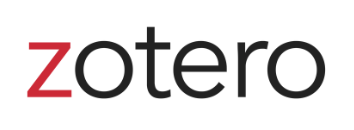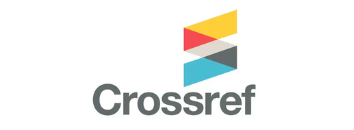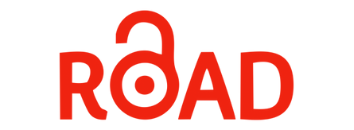The Empowerment of Small Enterprises in Construction Sector for Government Procurement of Goods and Services: Mandatory Study of Role and Risk
DOI:
https://doi.org/10.24002/kinerja.v24i1.2765Abstract
This study aims to investigate the empowerment of small enterprises in construction sector and the risks since the issuance of Perpres No.16 Year 2018 and PermenPUPR No 7 Year 2019. The accuracy of the procurement and the development of small-medium enterprise role have been parts of the objectives of government procurement. Then, the policy states that government should give opportunities to small enterprises. Qualitative study was conducted using the approach of applied law research. Literature study and observation on the stake holders were done. The results showed that small enterprises in construction sector played more roles with the procurement package up to Rp 10,000,000,000.00 (ten billion rupiah). However, the implementation in 2018 showed that the role of small enterprises declined compared to the previous year, the participation of small enterprises in construction sector was still low compared to non-small enterprises. Besides that, the small enterprises that received the procurement package were prone to criteria violation of small enterprises as in UU No. 20 Year 2008 about micro, small and medium enterprises (MSME). The identified risk was that the small enterprises received the package for small enterprises in construction sector. This risk should be maintained and handled by procurement agents through effective qualification verification, by government instances that issue the construction permit by developing the potency of the small enterprises to level up, and government instances through association of construction enterprises by cooperating in building good governance in the management of construction procurement.
Keywords: small enterprises, empowerment, risks, good governance
References
Abdillah M.B., Hakim R.M.A., Damiri D.M, & Zahra F. 2017. Analisis Strategi Bisnis Pada UMKM Kerajinan Bambu di Kota Bandung, Jurnal AdBispreneur, 2(3), December, pp.227-242.
Agnefa A.C. 2018. Strategi Pengembangan Usaha Mikro Kecil Menengah Warmindo Wala Weleu Berdasarkan Analisis SWOT. Thesis. Program Studi Pendidikan Ekonomi, Bidang Keahlian Khusus Pendidikan Akuntansi, Universitas Sanata Dharma, Yogyakarta.
Alyas & Rakib M. 2017. Strategi Pengembangan Usaha Mikro, Kecil dan Menengah dalam Penguatan Ekonomi Kerakyatan (Studi Kasus pada Usaha Roti Maros di Kabupaten Maros). Jurnal Sosio Humaniora, 19(2), July, pp.114-120.
Ariani and Utomo M.N. 2017. Kajian Strategi Pengembangan Usaha Mikro Kecil dan Menengah (UMKM) di Kota Tarakan. Jurnal Organisasi dan Manajemen, 13(2), September, pp. 99-118.
BPKP. 2014. Analisis Kebijakan Publik. Modul Diklat JFA Penjenjangan Tingkat Madya, Pusdiklatwas BPKP, Bogor.
Gunawan, I. 2013. Metode Penelitian Kualitatif: Teori dan Praktik. PT Bumi Aksara, Jakarta.
Hamid E. S. & Susilo, Y.S. 2011. Strategi Pengembangan Usaha Mikro Kecil dan Menengah di Provinsi Daerah Istimewa Yogyakarta. Jurnal Ekonomi Pembangunan, 12(1), June, pp. 45-55.
Kamal M. 2010. Pembuktian Kualifikasi yang Efektif: Tinjauan Best Practice, http://pusdiklatwas.bpkp.go.id/asset/files/post/a_38/PEMBUKTIAN_KUALIFIKASI_YANG_EFEKTIF_tinjauan_best_prctice.pdf [Accessed September 5, 2019].
Kamal, M. 2018. Penilaian Risiko Fraud di Manajemen Pemerintah. Jurnal Liquidity, 7(1), January-June, pp. 27-32.
Kamal, M. & Elim, J. 2018. Governance Strategy of Government Procurement: Retrospective Case Study. Call for paper in lICAS PGS 2 FIA UI, Hotel Aston Simatupang, Jakarta Selatan.
Kamal, M. & Tohom, A. 2019. Likelihood Rating of Fraud Risk in Government Procurement, The International Journal of Business Review, June, 2(1).
Kamal, M. 2019. Development Strategy of Village Owned Enterprises Based on Village Expenditure. E-Proceedings and Paper Presentation at The First International Seminar of Widyaiswara Association of Banten Province (IWI Banten), Pandeglang – Banten.
LKPP, 2019, Profil Pengadaan Barang/Jasa Pemerintah T.A. 2018, Deputi Bidang Monitoring-Evaluasi dan Pengembangan Sistem Informasi, Direktorat Perencanaan, Monitoring dan Evaluasi Pengadaan, LKPP https://monev-ng.lkpp.go.id/themes/slate/dashboard/dokumen/profilpengadaan_2018.pdf, [Accessed September 5, 2019].
Nurharyanto. 2010. Konsep dan Implementasi Risk Assessment, Modul Diklat Sistem Pengendalian Intern Pemerintah (SPIP) Dasar. Pusdiklatwas BPKP, Bogor.
Suteki & Taufani, G., 2018. Metodologi Penelitian Hukum (Filsafat, Teori dan Praktik), PT Raja Grafindo Persada, Depok.
Suci Y.R. 2017. Perkembangan UMKM (Usaha Mikro Kecil dan Menengah) di indonesia, Jurnal Ilmiah Cano Ekonomos, 6(1).
Syuhada, A.A. & Gambetta W. 2013. Online Marketplace for Indonesian Micro Small and Medium Enterprises Based on Social Media, The 4th International Conference on Electrical Engineering and Informatics (ICEEI 2013), Elsevier, Procedia Technology 11, pp. 446 – 454.
Zhafran, G.A.R. 2017. Contoh Analisis SWOT | Lengkap Pengertian, Tujuan, Manfaat, dan Cara Membuatnya, https://ekspektasia.com/contoh-analisis-swot/ [Accessed, June 27, 2019].














